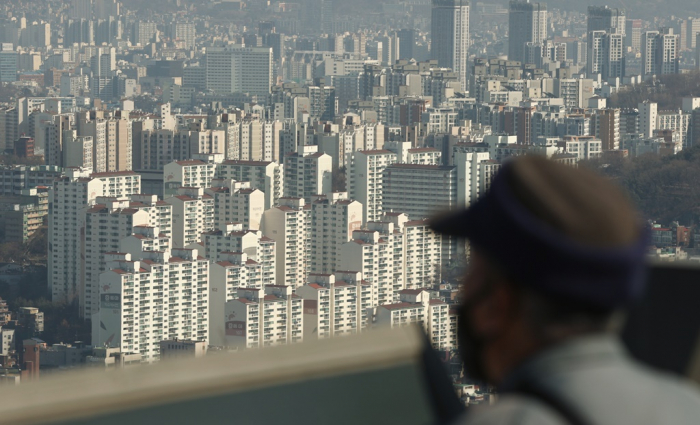South Korea’s household debt hit a record on surging property prices, stoking concerns over a slowdown in private consumption in Asia’s fourth-largest economy.
Household credits outstanding totaled an all-time high of 1,862.1 trillion won ($1.6 trillion) as of end-December 2021, up 134.1 trillion won from a year earlier, data from the Bank of Korea showed on Tuesday. The household credits outstanding includes household loans and merchandise credits.
The increase was the largest since 2016 when the outstanding grew 139.4 trillion won on easier lending rules such as the loan-to-value ratio.
The debt’s rise in 2021 came as
households borrowed more mainly to buy homes and stocks. Household loans stood at a record high of 1,755.8 trillion won with mortgage loans up 71.8 trillion won to 982.4 trillion won. The mortgage loan growth was at a five-year high.
RISING INTEREST RATESSurging household debts are expected to bite into economic growth, especially as interest rates are rising, analysts said. Higher borrowing costs usually cut household disposable income and spending.
The most liquid three-year Korean treasury bond yield on Monday rose 4.1 basis points to 2.363%, the highest since Sept. 19, 2014.
To ease risks from household debts,
the authorities slowed their growth. The household credits outstanding increased 19.1 trillion won in the fourth quarter of 2021, smaller than 34.9 trillion won in the third and 43.5 trillion won in the second.
Prices of some apartments in Seoul declined, showing signs of stabilization in the country’s housing market, as a result.
Write to Ik-Hwan Kim at
lovepen@hankyung.comJongwoo Cheon edited this article.



